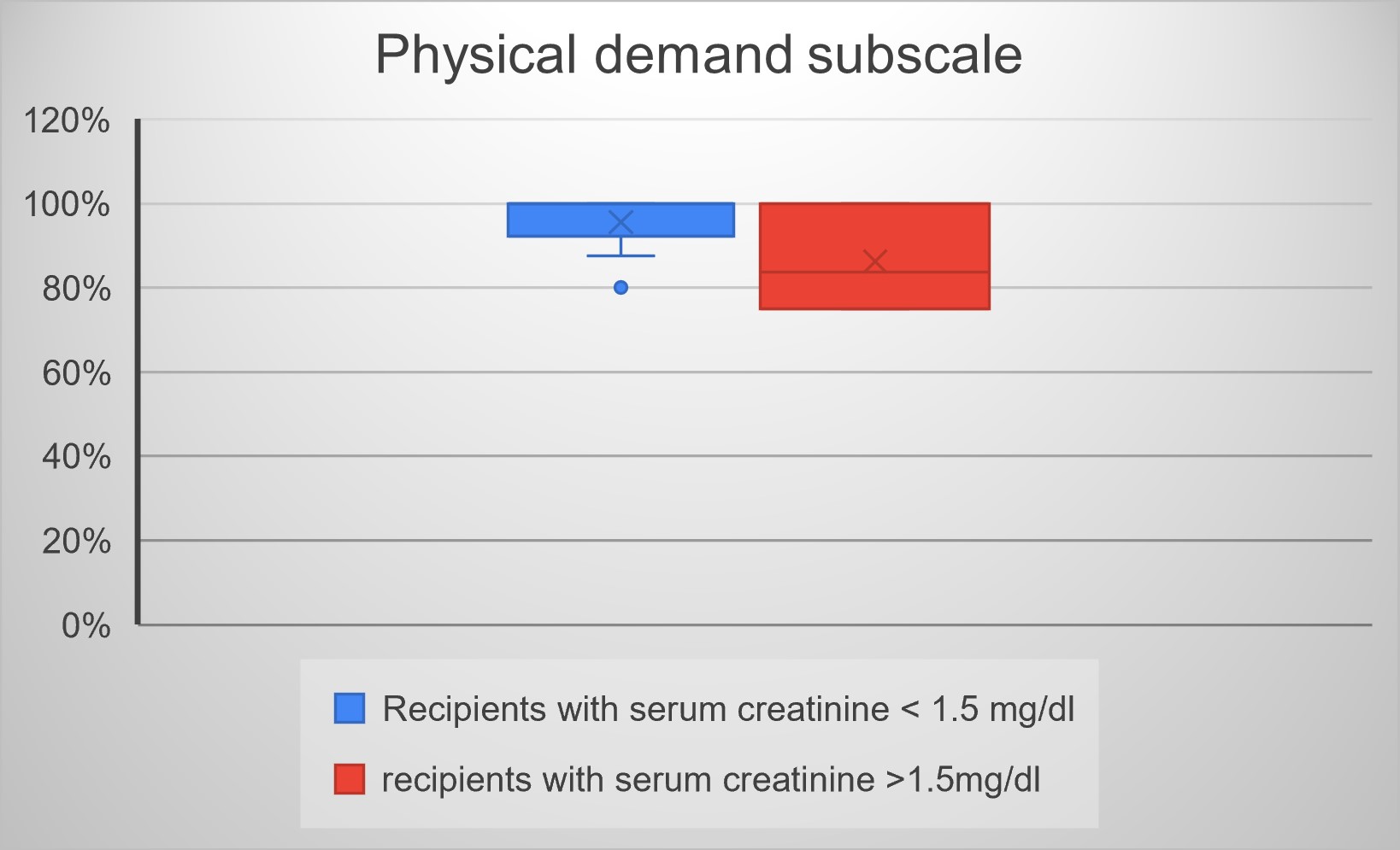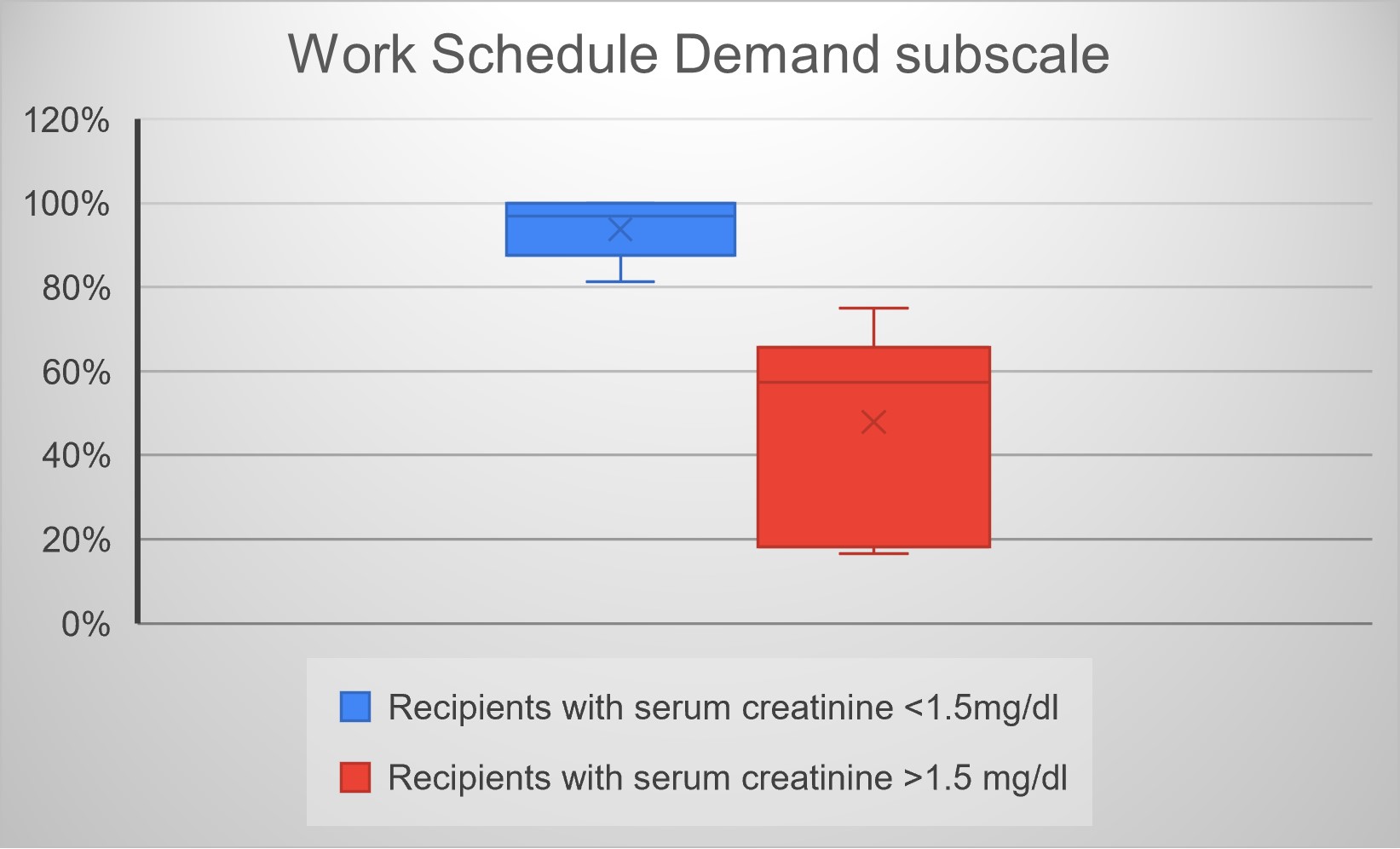Challenges in the health-work interface of renal transplant recipients: A PROM based exploration from a public sector hospital in Eastern India
Aniruddha Datta1, Arpita Ray Chaudhary2, Rima Mahapatra1, Lacky Saha1, Atanu Pal1, Koushik Bhattacharjee1, Sanjay Dasgupta1, Arunangshu Bandhyopadhyay1.
1Nephrology, Institute of Post graduate Medical Education and Research, Kolkata, India; 2Nephrology, North Bengal Medical College and Hospital, Siliguri, India
Introduction: In LMIC countries like India,data about employment status in post-transplant patients are sparse and more so are the challenges perceived by them in the work environment. We report a single centre observational cross-sectional study aimed at identifying health related work function indices in post renal transplant patients.
Method: This interview based study assessed health-related work functioning and therapy-related side effects. Interviews covered pretransplant status, employment status, overall health, and renal function.Health related work functioning was assessed using Work Role Functioning questionnaire v2.0 and patient reported outcomes of therapy related side effects was assessed using Modified Transplant Symptom Occurrence and Symptom Distress Scale 59 Revised Questionnaire.
Results: Of the 34 participants 58% were male and were a mix from rural (52.94%), semi-urban (20.58%) and city areas (26.47%). Median post-transplant period was 33.5 [21.5-93.25] months and median eGFR 67.0[32-80.75] ml/min/1.73m2.
Majority, 88.24% were employed, 8.82% were homemakers and 1 was currently unemployed. All the patients were literates with 38.24% having completed graduation, 31.28% patients reported changes in their employment/ source of income post transplantation including working in online marketing or as Online influencers.
31.25% patients had documented episodes of allograft rejection. Work role function wise work scheduling demands were met in a median of 87.5% (IQR, 59.37%–100%), output demands were met in a median of 87.5% (IQR, 75%–91.73%), physical demands were met in a median of 97.5 % (IQR, 81.88%–100%), mental and social demands were met in a median of 91.02 % (IQR 83.03 %– 96.43%), and flexibility demands were met in a median of 93.75% (IQR 81.25%–100%) of the work time. Comparing between group of patients having serum creatinine <1.5mg/dl vs the vice versa, no significant difference was seen in terms of physical demand subscale, but significant difference was observed in the other subscales of work scheduling demand, output demand, mental and social demand and flexibility demands scales.

The patient reported outcomes of therapy related side effects using Modified Transplant Symptom Occurrence and Symptom Distress Scale 59 Revised Questionnaire showed Itching (85.67%), flatulence (81.23%), weakness (79.75%) and dry skin (76.51%) to be the most common complaints. Anxiety/ nervousness, depression was more prevalent in patients with worse renal function.
Conclusion: Post-transplant care extends beyond physical health and must encompass socio-economic rehabilitation and psychosocial support to build resilience and alleviate stress. These highlights the need of collaborative efforts for enhanced supportive care in renal transplant patients across diverse social niches.
[1] Work Function
[2] Socio-economic rehabilitation
